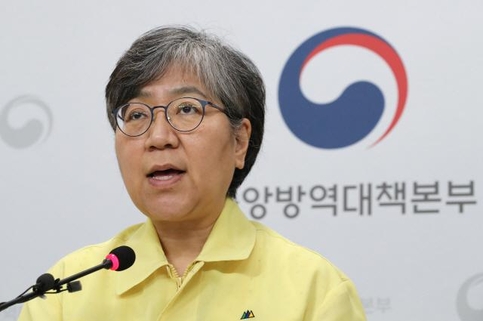Input 2020.12.28 14:31 | Revision 2020.12.28 16:44
“The vaccine for 46 million people, exceeding 100% of the eligible population”
“National compensation system applied in case of adverse reaction after vaccination”
“Aim to complete vaccination for priority vaccination targets by next November”
Early vaccination of Astra vaccine is unknown, with no clinical results for the elderly

Jung Eun-kyung, head of the Central Defense Response Headquarters (Bang Dae-bon), said at a regular briefing on the 28th, “The government will vaccination against those who are recommended for priority vaccination starting from February to March next year, when the (Corona 19) vaccine is supplied to Korea. We are preparing a plan to finish before (November).”

“We will start vaccination for 1 million senior citizens living in group facilities such as nursing hospitals and nursing facilities, as well as workers in high-risk medical institutions to maintain the function of the health care system among those who are recommended for priority vaccination,” he said. did.
Those who are recommended for preferential vaccination that Bang Dae-bon revealed through a press release on the day are ▲ medical institution workers ▲ group facility residents and workers ▲ 65 years old or older ▲ adults with chronic illness (19-64 years old, moderate or higher risk) ▲ children and adolescents education and childcare facilities Workers and staff ▲ Corona 19 first responders ▲ Police, fire fighting officials, soldiers, etc.
The Corona 19 vaccine that the Korean government will secure first is likely to be AstraZeneca’s vaccine. The government aims to receive 10 million people from AstraZeneca during the first quarter, and 10 million people from Cobox Facility, an international project for joint purchase and distribution of vaccines. The quantity secured through Cobox Facility is provided by AstraZeneca, US Pfizer, UK GSK (Glaxos Miss Kline), and French Sanofi. In the case of Pfizer, it is necessary to prepare a separate freezer for distribution of the vaccine, and GSK and Sanofi have not completed phase 3 clinical trials, so the first Corona 19 vaccine to be secured by the government is considered AstraZeneca’s vaccine.
However, AstraZeneca has not completed a clinical trial that can prove the safety and efficacy of the elderly over 65 years of age, which the government is considering as a recommended candidate for preferred vaccination. General Manager Jeong explained, “AstraZeneca vaccine is undergoing clinical trials for the elderly,” and “Our Ministry of Food and Drug Safety is also undergoing preliminary review by receiving non-clinical and quality-related data.”
Regarding the vaccination agency, we are preparing a plan in two ways, taking into account the characteristics of each vaccine. For vaccines that need to be distributed at -60 to 90 degrees Celsius, such as Pfizer, about 100 to 250 separate vaccination centers with freezers will be designated and operated. Vaccines that can be stored and distributed in the refrigerator at 2 to 8 degrees Celsius are planned to be administered by designating an institution that meets the designated criteria among consignment medical institutions with vaccination experience.
“For systematic and safe vaccination, we will prepare the’Corona 19 vaccine distribution and storage guidelines’ with relevant ministries such as the Ministry of Food and Drug Safety, and establish a distribution and supply management system such as cold chain monitoring, and check them at all times.”
He also added, “We plan to equip 250 units of cryogenic freezers within the first quarter to manage the frozen distribution and storage of Pfizer vaccines,” he added. “The government purchase process is currently in progress.”
Along with this, Bang Dae-bon announced that there are products that need to be vaccinated twice among the corona 19 vaccines, and that it is building a’corona 19 vaccination integrated management system’ in consideration of the need to prevent cross-vaccination. This is a separate system from the existing national vaccination system.
With the new system, Bang Dae-bon plans to supply and manage vaccines, register vaccinations, and monitor adverse reactions after vaccination.
“Regarding the management of adverse reactions after vaccination, the Korea Disease Administration and Food and Drug Administration will establish and operate a joint surveillance system, and apply a national compensation system for damages with confirmed causality,” said Jung, head of the headquarters.
Bang Dae-bon said that the detailed vaccination plan will be announced in January of next year. According to Bang Dae-bon, the vaccine for 46 million people currently purchased by the government (including plans to purchase) accounts for 88.8% of the total population of Korea, 51.8 million people, and 104.3% of the 44.1 million people over the age of 18 who can be vaccinated. Bang Dae-bon explained that this is a sufficient amount for the formation of domestic population immunity, considering the opinion of the academic community that 60-70% of the total population needs antibody formation for general population immunity.
While proceeding with vaccine purchase and introduction in Korea without a hitch, the domestic COVID-19 epidemic continues, and in consideration of the possibility of shortage in supply due to increasing demand in each country, it will advance the domestic supply period and secure additional supplies. He said that it is in continuous discussions with individual pharmaceutical companies.
